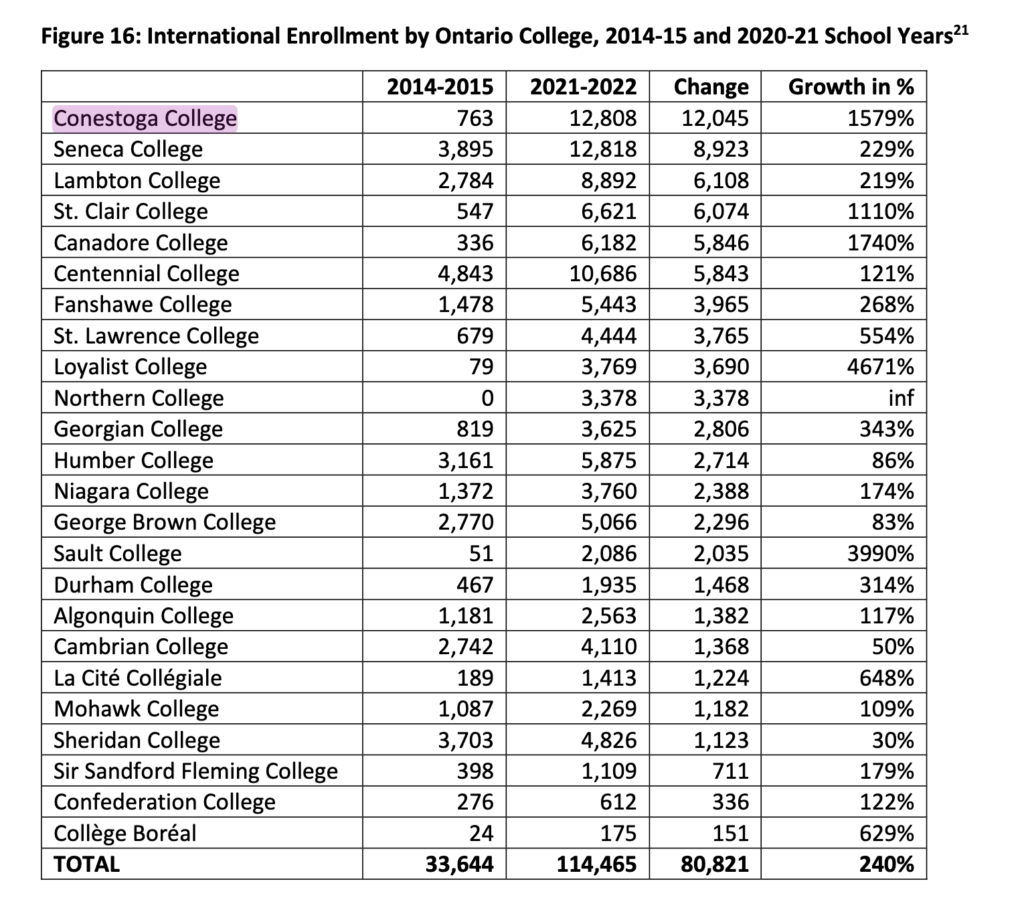
You don’t have to be a labour expert to tell that working in Canada doesn’t pay like it used to.
Many Canadians, young and old are dropping out of the workforce in droves.
Whether its for forever or just temporarily in hopes the job market shapes up in later, Canadians are re-thinking their work-life balance due to imbalances in the fabric of Canada’s wages and society.
I’ve searched the web, interviewed my Canadian friends, and even talked to their adult children to help translate the issues Canadians are facing internally when it comes to work and wages.
Now, without further ado, let me tell you what I’ve found are main reasons why Canadians don’t work, even if they can!
Reason #1 Massive Growth of Canada’s Labour Pool
According to Stats Canada, Canada’s population increased by over 1,030,378 in the first 9 months of 2023. But guess what? It’s not because Canadians are having more babies.
Nope, it’s due to a surge in immigration, fueled by some pretty loose visa, permanent residence, education-based immigration policies.
This record international immigration comes at a time where Canada’s job creation numbers have slumped. Let me explain.
Canada’s latest job report from December 2023, states that we added 23,600 part-time positions, and lost 23,500 full-time jobs for a small increase of 100 part-time jobs.
Now, how is an influx of people the reason why Canadians don’t work as much now?
Firstly, It’s because it’s creating a supply imbalance. There’s too many people and too little jobs creating fierce competition and degrading work conditions due to the replace-ability of cheap labour.
When you’re adding 1 million people in 3 quarters, and can only produce 100 part-time jobs a month, your prospects for finding a job in Canada get bleak. Add in a declining economy and many Canadians have given up the job search completely or in hopes it will pick up later.
And who can blame them, it’s part of the reason why I started this site. To match Canadians and new immigrants who are fed up with the broken Canadian promise to a country that supports their lifestyle. But back to the topic at hand:
This isn’t just about numbers; it’s a real-life struggle for both young and old Canadians, and newcomers too. The lack of solid, full-time jobs is pushing a lot of Canadians to the sidelines. Our young folks, in particular, are feeling pretty let down. And even if they do end up finding a job, they work hard, but with housing and living costs skyrocketing, they’re barely making ends meet. So naturally, they’re stepping back and saying, “Why bother?”
The lack of substantial job creation, especially in full-time positions, give credence to the fact that there’s an underlying issue in the Canadian economy demotivating or de-incentivizing Canadians to work in the first place.
This situation is particularly pressing for Canadian youth which tell me they see a breakdown in the social contract, where their hard work is not rewarded due to high costs of living and housing, leading them to disengage from the job market entirely.
Reason #2 Poor Wages and a Harsh Financial Outlook
Let’s talk about something that’s really hitting Canadians hard – the decline in Canadian wages in the face of large cost-of-living increases. According to ZipRecruiter the average Canadian job pays about $26/hr.
For many Canadians just starting out or immigrants new to the workforce this figure is closer to minimum wage or between $16.55 – $26.00/hr in Ontario.
For a whole month of work at $26/hr in Ontario you would net approximately $37,000 a year or $3000 dollars a month after taxes and deductions. Now, let’s look at the average rent in Ontario. Currently it is $2486.
If we do the math, for the average Canadian living alone in Ontario they will be paying 83% of their paycheck to rent and living off of $500 a month. Ask any Canadian and they’ll tell you it’s not possible to live off of 500 dollars a month in 2024 here.
Low Wages Equals Low Effort:

When we break down the numbers like this, we can start to see why Canadians don’t work and see that the value of Canadian wages are at an all time low and it’s signalling the lack worth associated with working a 9 to 5 job to Canadians who have the opportunity to opt out.
for many young, new, and old Canadians, there’s this sense that the whole ‘work hard and you’ll get ahead’ promise just isn’t holding up anymore. They’re grinding away, but with the cost of housing and groceries skyrocketing, they end up feeling stuck. It’s like running on a treadmill and going nowhere.
This feeling is leading some young folks to just opt out. They’re thinking, “Why bust my back for a system that doesn’t give back?” And can you blame them?
They’ve been told all their lives that hard work pays off, but now they’re seeing that’s not always the case. It’s not just about being lazy or not wanting to work; it’s about feeling like the whole deal – the social contract in Canada – is broken.
Reason #3 The Devaluation of Education in Canada: The Diploma Mill Dilemma
In Canada, a troubling trend has emerged within the realm of higher education, particularly among lower-level colleges.
These ‘institutions’ are exploiting Canada’s immigration loopholes to boost their revenues through admitting as many international students as possible to their programs.

To put that in simpler terms, these ‘diploma mills,’ or ‘strip-mall-colleges’ accept massive numbers of foreigners to increase their short-term revenue due to the lucrative tuition fees from foreigners.
But, why is this a bad thing?
Well, for a few reasons. Firstly, when a college is more incentivized to pass as many people through its doors as possible, there is a massive quality drop in these graduates.
Furthermore, this drop in quality of graduates is noticeable… at least it has been whispered for some large-scale Ontario-based employers.
So, when you have employers worried about the competence of your college, on-top of a declining job market, Canadians studying here see themselves as being preemptively screened from the job pool at a higher rate or see that their affordable college is no-longer a ticket to financial freedom as it was before.
And so, they start seeing their job prospects decline before their eyes.
The implications of this scenario are far-reaching. Not only does it devalue the Canadian educational system, but it also places international students and Canadian residents in a vulnerable position, often leaving them with qualifications that are not respected by employers. Furthermore, it strains the Canadian job market and housing sector, impacting broader societal facets.
Reason #4 Canadian Money Goes Into Non-Productive Assets
In the current economic climate of Canada, a worrying trend has emerged where a significant portion of capital is being invested in non-productive assets, notably real estate. This focus on real estate, which has become a substantial part of the Canadian economy, is diverting crucial investment away from areas like startups, small businesses, and other key industries that traditionally drive job creation and economic growth.
As of July 2023, real estate made up about 40% of Canadian GDP. The problem, as highlighted by experts, is that real estate is a non-producing asset; it doesn’t contribute to ongoing economic growth once the investment is made. This has significant implications for the job market. Most of the new jobs created in Canada in recent years have been in the public sector, not in productive industries.

This concentration on government jobs and real estate, both non-productive sectors, is stifling economic growth and limiting the creation of diverse job opportunities.
This focus on real estate investment over other sectors is not just affecting the job market but is also driving up the cost of living, particularly housing prices. This makes it increasingly difficult for young Canadians to afford homes and contributes to a higher cost of living, further squeezing their budgets.
Entrepreneurship is Dying in Canada
Moreover, the shift away from investing in small and medium enterprises (SMEs), which are crucial drivers of employment, is problematic. As of December 2021, small businesses employed a significant portion of the private labor force in Canada. However, the diversion of capital to real estate means less funding is available for these businesses, which are essential for job creation and economic diversity.
This situation paints a concerning picture: as capital is increasingly flowing into the real estate market, it becomes unavailable for sectors that could provide more diverse and potentially more stable employment opportunities and benefits to Canadians.
This trend is not only a sign of a potential misallocation of resources but also a red flag indicating a possible stagnation in the Canadian economy’s ability to innovate and grow in other critical sectors.
In conclusion, the Canadian tilt towards real estate investment over productive sectors is a complex issue with consequences which will pan out as we go deeper into 2024 and beyond. More specifically It’s impacting job creation, the cost of living, and the overall economic health of the country.
This dynamic is an essential piece of the puzzle in understanding why many Canadians, especially the youth, are finding it increasingly difficult to engage in the workforce in meaningful and fulfilling ways.
Conclusion: Why Canadians Don’t Work As Much – Work Prospects in Canada are Lacking
If this article isn’t convincing enough, you may want to ask fellow Canadians how they’re job search is going. Many are struggling to find a job or dropping out entirely if they have the option. Alternatively there are a select few leaving Canada in search of greener job pastures. If you’d like to explore alternate countries with better job prospects, you should take our Country Quiz here:
Looking to leave Canada?
Take the country quiz to see where you belong!

Leave a Reply